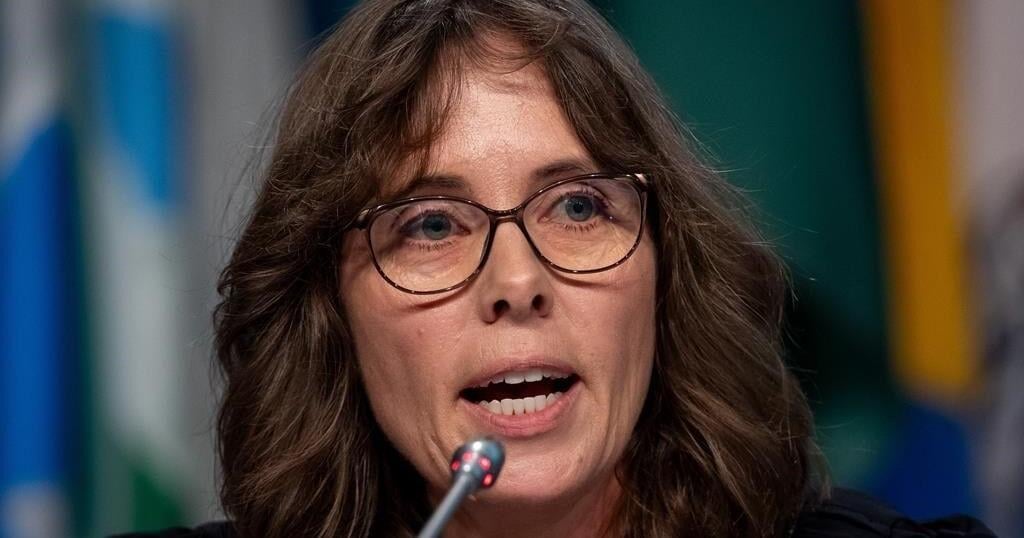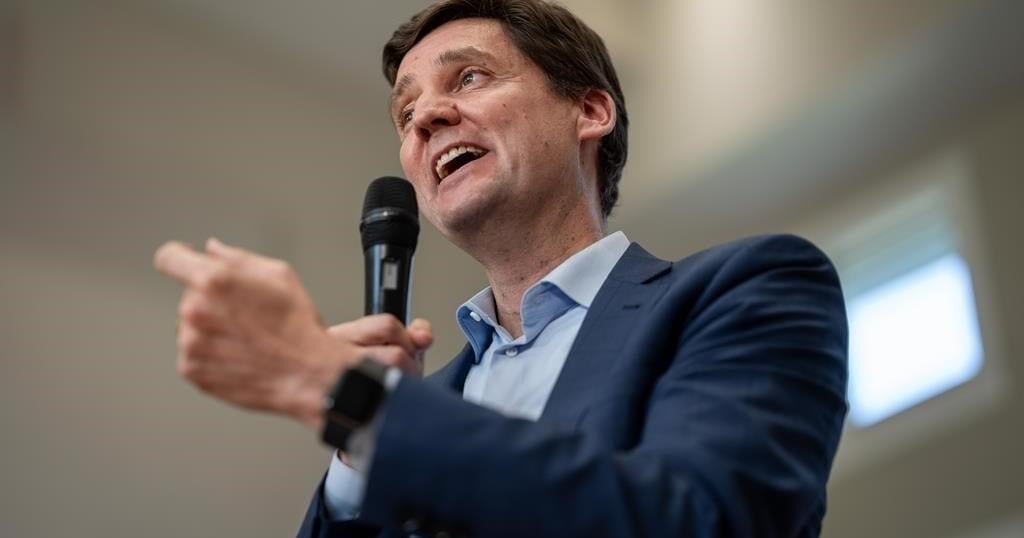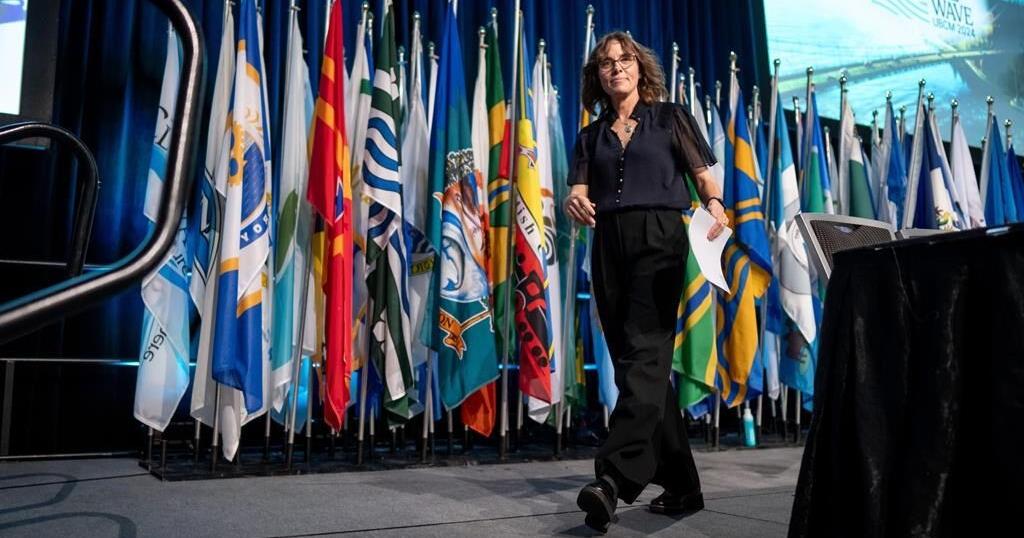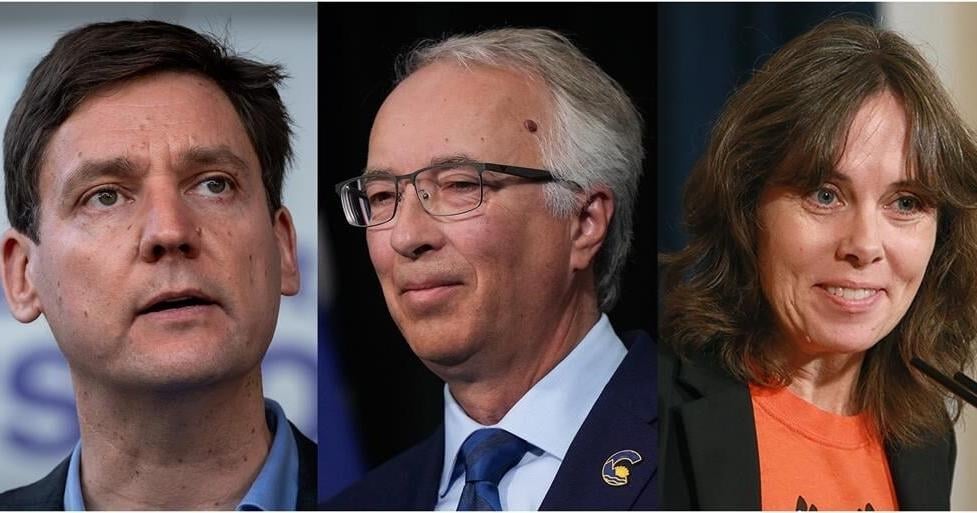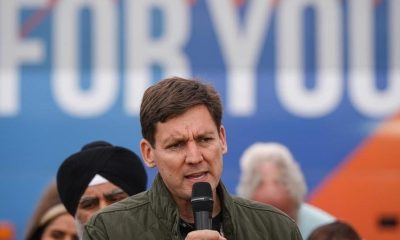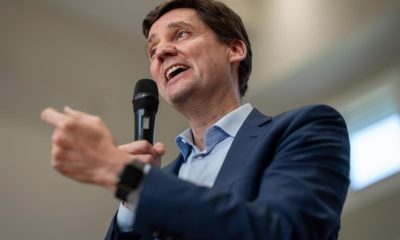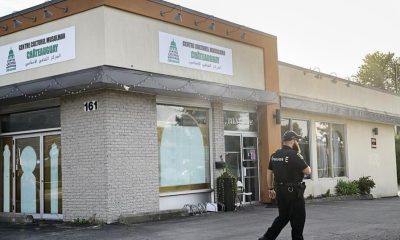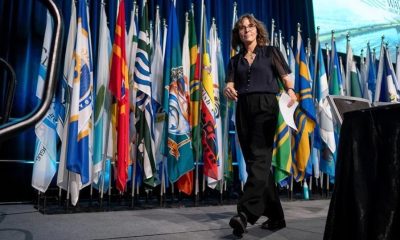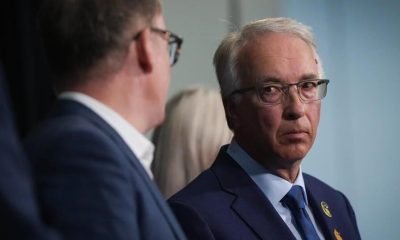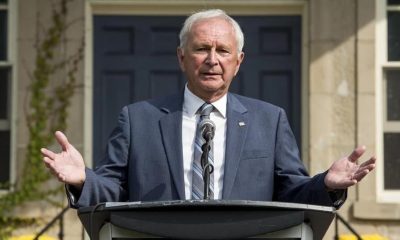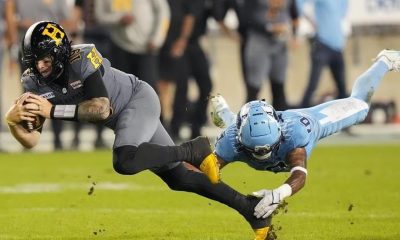The leader of British Columbia’s Green Party faces an uphill battle one month before the provincial election as she faces off against an incumbent cabinet minister in a Victoria riding that’s long been held by a New Democrat.
But Sonia Furstenau says returning to Victoria from the Cowichan Valley, where she was first elected to the B.C. legislature in 2017, is a homecoming.
Furstenau says her grandparents and parents met and got married in the city, it’s where she attended university and taught high school, and it’s where the 54-year-old lives just five minutes away from her first grandchild, a baby due in November.
“I’ve picked out the yarn for the baby sweater I’ll be knitting in the next few months,” Furstenau said, adding she is “beyond excited” to become a grandmother.
Furstenau acknowledges it’s “never an easy thing” to get elected as a Green in B.C., noting she’s among three party members ever to sit in the legislature.
“We have to work incredibly hard to be elected, and what that shows to voters is you are guaranteed to have a hardworking MLA,” she said in an interview.
The collapse of B.C.’s Official Opposition less than two months before the Oct. 19 election underscores the need for a collaborative minority government where Greens can shape legislation and keep the party in power in check, Furstenau said.
The withdrawal of BC United, formerly the BC Liberal Party — and its leader Kevin Falcon’s appeal for supporters to instead vote for the Conservative Party of B.C. under John Rustad — is a “weakening of democratic choice” in the province, she said.
But the Greens are determined to show voters there’s an alternative to the polarization and acrimony between the two major parties, she said.
“We have demonstrated in the last seven years that we can actually bring about real change in the legislature. Even a small number of Greens makes a big difference.”
The Greens under Furstenau’s predecessor Andrew Weaver helped John Horgan’s NDP form government in 2017, defeating Christy Clark’s BC Liberals.
Seven years later, Furstenau says voters are feeling “disaffected” with the New Democrats, describing Leader David Eby’s majority government as failing to live up to its progressive values and deliver people the help, and hope, they need.
The Conservative Party of B.C. has meanwhile risen from electoral insignificance four years ago, garnering less than two per cent of the popular vote in 2020, to become the NDP’s main rival in this election.
Furstenau said the NDP and Conservatives are busy defining themselves as each other’s opposite instead of offering voters a vision for a better future.
“More than ever, we need BC Greens in the legislature to keep the focus on the health and wellbeing of people, communities, the environment and our economy.”
Stewart Prest, a politics lecturer at the University of B.C., said in an interview there is a “clear divide” between the New Democrats and Conservatives, and voters appear to be fairly evenly split about a month before they head to the polls.
But Prest said the NDP has recently taken most centrist positions, narrowing the gap to the Conservatives, notably around repealing carbon pricing for consumers if Ottawa removes the requirement for a provincial levy,and bringing in involuntary treatment for people with complex mental health and addictions challenges.
“It’s hard to overstate just how much of a change has been wrought by the departure of BC United. I think we’re seeing rapid recalculation, particularly by the NDP, in looking for ways to limit their exposure to attack by the BC Conservatives.”
The shifts by the New Democrats could open an opportunity for the Greens, Prest said, adding that’s “something they desperately needed.”
Prest said the Greens have also managed to distinguish themselves as “good parliamentary citizens” who worked to shape conversations across party lines.
“There’s merit to the message that having multiple views in the legislature and moving away from a polarized environment is (for) the good,” he said.
“But that doesn’t automatically translate into voters feeling comfortable casting a vote for the Greens in a tight race where there are still dramatic differences between the two leading parties.”
Prest said he thinks the likely scenario is the re-consolidation of B.C.’s political landscape into a two-party dynamic with the Greens as a “distant third.”
Still, he said the level of frustration and distrust among voters around mainstream political options in B.C. and across the country adds a layer of unpredictability.
Furstenau said the polarization of the NDP and Conservatives matches the combativeness that has become “standing operating procedure” in the legislature.
She said the Greens’ collaborative spirit sets them apart from the other parties, and voters recognize the value in a representative who is focused on serving their community instead of “party lines and partisan games.”
Furstenau is counting on her message of hard work and hope resonating with voters in Victoria-Beacon Hill, where she is squaring off against Grace Lore, the minister of children and family development, and Conservative Tim Thielmann.
She enters the race as she and her husband return to Victoria after more than a decade in the Cowichan Valley, where she was elected to the legislature in 2017.
“I’m really proud of the service that I have given in my community and in the Cowichan Valley, and I’m also really happy to be back home in Victoria,” she said.
The lack of affordable housing in Victoria was a factor in the move. Furstenau said her youngest son was starting his second year of university, and he and his roommates were in the process of moving into the basement of the family home.
The Greens have so far pledged to spend $1.5 billion on a fund to spur the development of affordable rental housing as part of their forthcoming platform.
The party is also proposing to lower the voting age in the province to 16, with a statement from Furstenau last week saying the move would jumpstart civic engagement while giving young people a real say in shaping their future.
Furstenau said she refers to the upcoming platform as “the book of hope and joy,” offering solutions to B.C.’s health-care crisis, including a promise to invest in community health centres, as well as a “real vision” for public transit in the province.
This report by The Canadian Press was first published Sept. 21, 2024.

